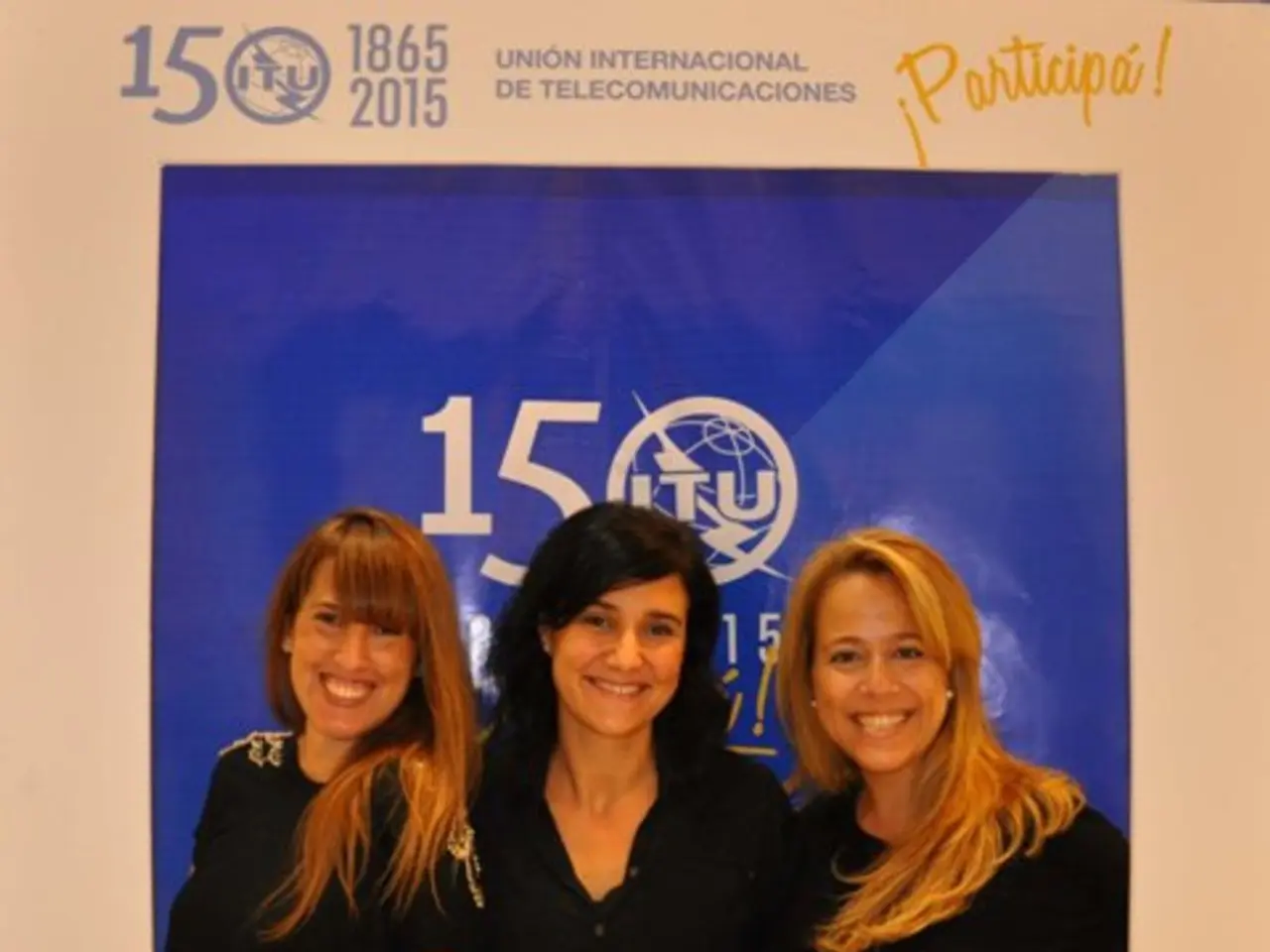Navigating Leadership and Motherhood: Offered Insights on Blending Business and Childcare Responsibilities
In the dynamic world of startups, few stories are as inspiring as that of Shilpika Gautam, the founder of Opna, a groundbreaking company that unlocks finance for carbon removal projects. Recently, Opna raised an impressive $6.5 million in a funding round led by Atomico, propelling Gautam into the limelight. But Gautam's journey is not just about business success; it's also a testament to the power of balancing motherhood and entrepreneurship.
Gautam, a mother to a one-year-old child, has navigated the challenges of juggling her roles with remarkable grace. In the weeks and months following her child's birth, she continued to attend industry events, but found it challenging. However, her board, recognising the financial pressures that new parents face, offered to provide supplements to her salary or money for care.
To anchor the business, Gautam hired a Chief of Staff to act as a de facto Gautam, managing day-to-day business needs, allowing her to focus on both leadership and family demands effectively. This strategic delegation has been instrumental in mitigating burnout and maintaining business momentum.
Gautam emphasises the importance of making plans before the birth and bringing people into her circle, including her board and team. She notes that discussions with investors about her pregnancy were necessary, as there is no playbook for this, and that some founders speak to their backers two or three months into their pregnancies while others leave it much later.
Hailey Eustace, the founder of Commplicated, a company offering flexible solutions for busy professionals, shares similar experiences. Eustace, a mother of two children, started her own company for the flexibility it offered, her first hire being an assistant to handle administrative tasks. She too stresses the importance of finding a support system, or "village", for balancing the roles of founder and mother.
Successful founder-mothers like Gautam and Eustace rely on several key strategies to thrive in both domains. One such strategy is the sharing of responsibilities and delegation. By splitting duties and hiring key team members, founders can focus on both leadership and family demands effectively.
Motherhood, rather than being seen as a conflicting role, is viewed as a powerful driver for innovation and clarity of purpose. Motherhood fosters resilience, empathy, long-term vision, and the ability to operate under pressure—qualities that translate directly into effective leadership and values-driven businesses.
Parenthood forces founders to become more strategic and intentional with their time. With limited hours available, they focus intensely on the most impactful opportunities, cutting out distractions and chasing only those aligned with personal and professional values. This heightened efficiency can improve both business outcomes and family life.
Successful founders do not compartmentalise their work and family life strictly but seek harmony, allowing experiences as a mother to enhance their leadership qualities such as empathy and strategic thinking. This integrated approach helps ensure neither role suffers and promotes sustainable success.
Many mom-founders engage with communities, podcasts, and networks tailored to women balancing startups and motherhood, such as "This Mother Means Business." These platforms provide practical advice, emotional support, and shared experiences essential for managing both roles.
Reconceptualising balance is also crucial. Entrepreneurs like Reid Hoffman have noted that traditional notions of balance may not apply to startup founders, who often embrace obsession and intensity. For mothers running startups, this means accepting that perfect balance is elusive but achieving success through focused passion and smart delegation is possible.
In essence, successful founder-mothers rely on delegation, clarity of purpose inspired by motherhood, efficient time management, integration of family and business roles, and community support to thrive in both domains. They rewrite the narrative by proving that motherhood enriches entrepreneurial leadership rather than limits it.
- Shilpika Gautam, the founder of Opna, opted for strategic delegation by hiring a Chief of Staff, allowing her to balance both leadership and family demands effectively.
- Hailey Eustace, another successful mother-founder, emphasized the importance of finding a support system as a co-founder and mother, just like Gautam did.
- Parenthood forces founders to become more strategic and intentional with their time, allowing them to focus on the most impactful opportunities and achieve both professional and personal success.
- By sharing responsibilities and delegating tasks, founders can thrive in both their entrepreneurial and familial roles, thereby demonstrating that motherhood enriches and does not limit entrepreneurial leadership.
- Entrepreneurial moms often collaborate with communities, podcasts, and networks specifically tailored to women balancing startups and motherhood, like "This Mother Means Business," to access practical advice, emotional support, and shared experiences essential for managing both roles.




